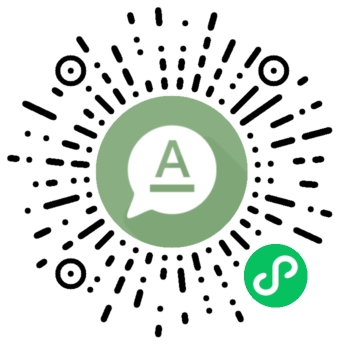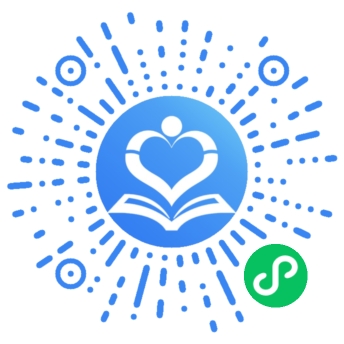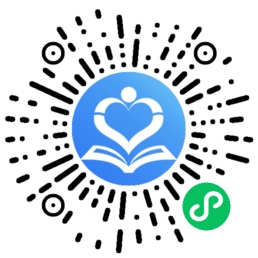中共党史专业介绍
中国共产党历史专业属于法学门类,政治学一级学科,该专业主要研究中国共产党的历史发展、理论政策与实践,探索中国共产党领导中国革命、建设、改革和党的建设的历史经验教训,揭示中国共产党执政规律、社会主义建设规律、人类社会发展规律。
英语单词分类 轻松记单词
laugh
英[lɑːf] 美[læf]
"his face wrinkled in a silent laugh of derision"
"he told a very funny joke"
"he knows a million gags"
"thanks for the laugh"
"he laughed unpleasantly at his own jest"
"even a schoolboy's jape is supposed to have some ascertainable point"
1.笑;大笑
When youlaugh, you make a sound with your throat while smiling and show that you are happy or amused. People also sometimes laugh when they feel nervous or are being unfriendly.
e.g. He was about to offer an explanation, but she was beginning tolaugh...
他正要解释,她却笑起来了。
e.g. He laughed with pleasure when people said he looked like his dad...
人们说他长得像父亲时,他乐得大笑起来。
2.嘲笑;讥笑
If peoplelaugh at someone or something, they mock them or make jokes about them.
e.g. I thought they were laughing at me because I was ugly...
我觉得他们嘲笑我是因为我长得丑。
e.g. She wanted tolaugh at the melodramatic way he was acting.
他戏剧化的夸张架势使她忍不住想笑。
3.开玩笑;逗趣
If you do somethingfor a laugh orfor laughs, you do it as a joke or for fun.
laugh
e.g. They were persuaded onstage for alaugh by their mates...
他们被同伴们说服,上台一乐。
e.g. It's a project she's doing for laughs.
这个项目是她图好玩儿才做的。
4.引人发笑;逗笑
If a person or their commentgets a laugh orraises a laugh, they make the people listening to them laugh.
laugh
e.g. If you can get alaugh by wearing a silly hat, you must have been born a comic...
如果你戴一顶傻傻的帽子就能让人发笑,那你一定是天生的笑匠。
e.g. The joke got a biglaugh, which encouraged me to continue.
我的笑话引来哄堂大笑,这使我深受鼓舞,继续往下讲。
5.好玩/ 开心/有点意思
If you describe a situation asa laugh ,a good laugh, ora bit of a laugh, you think that it is fun and do not take it too seriously.
e.g. Working there's great. It's quite a goodlaugh actually...
在那儿工作挺不错。说实在的,蛮好玩儿的。
e.g. It was a goodlaugh there!
那儿可真是好玩!
6.开心果;逗笑好玩的人
If you describe someone asa laugh ora good laugh, you like them because they are amusing and fun to be with.
e.g. Mickey was a goodlaugh and great to have in the dressing room.
米基是个活宝,在更衣室里总是逗人笑个不停。
7.(尤指经历了最初的苦恼不快后)觉得…可笑,对…一笑置之
If youhave a good laugh about something, you find it amusing and realize that it is funny, especially when the situation was at first upsetting.
e.g. We've both had a goodlaugh about the accident despite what's happened.
虽然出了意外,但我俩事后都一笑置之。
8.笑到最后;取得最后胜利
If you say that youhave the last laugh, you mean that you become successful at something so that people who criticize or oppose you look foolish.
e.g. Des O'Connor is expecting to have the lastlaugh on his critics by soaring to the top of the Christmas hit parade.
德斯·奥康纳预计会飙升至圣诞畅销唱片排行榜的榜首,这将让他的批评者都笑不出来。
9.别让我笑掉大牙了;别逗了
Some people reply to other people's comments or opinions by saying 'Don't make me laugh' when they disagree with them and think they are foolish or inaccurate.
e.g. Claire, a poisoner? Don't make melaugh — She was just a lousy cook.
克莱尔投毒?别逗了。她只不过厨艺很差罢了。
10.(对于困境或令人失望的境况)何妨一笑,还有可笑之处
If you say 'you've got to laugh' or 'you have to laugh', you are trying to see the amusing side of a difficult or disappointing situation rather than being sad or angry about it.
e.g. The bikers have shown enough contempt of the law to ride their machines over police cars. 'You've got tolaugh at their audacity,' said Mr Starkey.
摩托车党藐视法律,竟对警车玩起凌空飞车来。“牛气可嘉呀,”斯塔基先生说道。
11. tolaugh someone out of court -> see court
tolaugh in someone's face -> see face
tolaugh your head off -> see head
no laughing matter -> see matter
tolaugh all the way to the bank -> see way
相关词组:laugh off
1. laugh的解释
1. 大笑:根据王同亿主编的<>,大笑(laugh)是指在爆发式的狂笑到抑制着的窃笑这一范围内,由于发声的结果将空气从肺部逐出,以此对某种感情(如欢乐、喜悦、嘲弄、窘迫或恐惧)作出一种有声可闻的表示,常伴有嘴或脸部肌肉的运动和眼睛的闪亮.
2. 动词 笑:汉语中有些动词在及物方面对英语是起正迁移作用的,如买(buy)、看见(see)、抓住(seize)等等都是作及物动词,笑(laugh)、走(go)等等都用作不及物动词,而有些动词却是起负迁移作用的,如发生(happen或take place)、出现(appear)等等,
He could tell she was in a bad mood, and tried to laugh her out of it.
他看出她心情不好,想逗她笑好让她不再想烦恼的事。
It is natural to laugh when you are happy.
高兴时笑是正常的。
You have to laugh and find humor every day.
每天都要笑,每天都要找到幽默。
You should not laugh at the handicapped.
你们不应该嘲笑残疾人。
She knew the truth all along and was laughing up her sleeve at us.
她早就知道真相,却一直在暗中笑话我们。
The captain's cheerful laugh dispelled our fears.
船长愉快的笑声消除了我们的恐惧。
Her laugh was as grateful to him as a summer wind.
她的笑声对于他好象夏天的风一样令人愉快。
He told me the news with a laugh.
他笑着告诉我这个消息。
What a laugh to say that!
"真可笑,竟说出这种话来!"
to laugh loudly'/aloud'/out loud
大声 / 高声 / 放声地笑
You never laugh at my jokes!
你们听了我的笑话从不发笑!
The show was hilarious'u2500I couldn't stop laughing.
表演十分滑稽,弄得我笑个不停。
She always makes me laugh .
她老是引得我发笑。
He burst out laughing (= suddenly started laughing) .
他突然大笑起来。
She laughed to cover her nervousness.
她笑了,想以此来掩饰自己紧张的心情。
I told him I was worried but he laughed scornfully.
我告诉他我很担忧,可他却轻蔑地一笑。
'u2018You're crazy! 'u2019 she laughed.
“你疯啦!”她哈哈大笑起来。
If we win the next game we'll be laughing.
要是赢了下一场比赛,我们就占优势了。
'u2018Will your dad lend you the money? 'u2019 'u2018Don't make me laugh! 'u2019
“你父亲会借给你钱吗?”“别开玩笑了!”
Well, I'm sorry you've lost your shoes, but you've got to laugh, haven't you?
啊,真糟糕,你的鞋子丢了,可是这也挺逗的,是不是?
Everybody laughs at my accent.
大家都拿我的口音取笑。
She is not afraid to laugh at herself (= not be too serious about herself) .
她不怕取笑自己。
He laughed off suggestions that he was going to resign.
有人猜测他要辞职,他一笑置之。
to give a laugh
大笑一声
He was about to offer an explanation, but she was beginning to laugh...
他正要解释,她却笑起来了。
He laughed with pleasure when people said he looked like his dad...
人们说他长得像父亲时,他乐得大笑起来。
I thought they were laughing at me because I was ugly...
我觉得他们嘲笑我是因为我长得丑。
She wanted to laugh at the melodramatic way he was acting.
他戏剧化的夸张架势使她忍不住想笑。
They were persuaded onstage for a laugh by their mates...
他们被同伴们说服,上台一乐。
It's a project she's doing for laughs.
这个项目是她图好玩儿才做的。
If you can get a laugh by wearing a silly hat, you must have been born a comic...
如果你戴一顶傻傻的帽子就能让人发笑,那你一定是天生的笑匠。
The joke got a big laugh, which encouraged me to continue.
我的笑话引来哄堂大笑,这使我深受鼓舞,继续往下讲。
Working there's great. It's quite a good laugh actually...
在那儿工作挺不错。说实在的,蛮好玩儿的。
It was a good laugh there!
那儿可真是好玩!
Mickey was a good laugh and great to have in the dressing room.
米基是个活宝,在更衣室里总是逗人笑个不停。
We've both had a good laugh about the accident despite what's happened.
虽然出了意外,但我俩事后都一笑置之。
Des O'Connor is expecting to have the last laugh on his critics by soaring to the top of the Christmas hit parade.
德斯·奥康纳预计会飙升至圣诞畅销唱片排行榜的榜首,这将让他的批评者都笑不出来。
Claire, a poisoner? Don't make me laugh 'u2014 She was just a lousy cook.
克莱尔投毒?别逗了。她只不过厨艺很差罢了。
The bikers have shown enough contempt of the law to ride their machines over police cars. 'You've got to laugh at their audacity,' said Mr Starkey.
摩托车党藐视法律,竟对警车玩起凌空飞车来。“牛气可嘉呀,”斯塔基先生说道。
We were laughing about your brother.
我们正笑谈有关你哥哥的事情。
They all laughed about the joke.
这个笑话把他们全逗笑了。
It's not a matter to laugh about.
这不是一件好笑的事。
He was laughing away to himself all the time.
他自己不断地大笑。
laugh sth ⇔ awayHe laughed away the dangers.
他对这些危险一笑置之。
He talked and laughed away his leisure hours.
他的空闲时间就是在说说笑笑中消磨掉的。
You laughed him into silence.
你笑得他不作声了。
When I told Mother what the boys had done, she laughed herself into a state of helplessness.
我告诉母亲孩子们所做的事情时,她笑得合不拢嘴。
He had a bad fall while ice-skating but he laughed it off.
他滑冰时重重地摔了一跤,但他一笑置之。
He laughed it off.
他对此一笑置之。
The boy was brave enough to laugh off his pain.
这个男孩很勇敢,把痛苦不当回事。
He laughed off the embarrassing situation.
他对那尴尬的处境付之一笑。
They just laughed off the warning.
他们对那警告只是付之一笑。
This is a mistake that can't easily be laughed off.
这可不是可以一笑置之的错误。
He never dreamed that his request would be laughed off as a childish fancy.
他做梦也没想到,他的要求被当成幼稚的幻想而一笑置之。
laugh one's head offThe crowd must be enjoying the performance, they're laughing their heads off.
观众肯定喜欢这个表演,他们都放声大笑。
We laughed our heads off at the antics of the comedian.
喜剧演员的滑稽动作使我们大笑不已。
I laughed my head off when I heard of his discomfiture.
听到别人说起他的狼狈相,我放声大笑。
He was supposed to be a serious performer, but the crowd laughed him off the stage.
他被认为是严肃的演员,但观众却把他哄下了台。
The play was so bad that it was laughed off the stage.
这出剧很糟糕,最后在观众的哄笑中停演了。
He was very worried about getting seasick, but fellow travelers laughed him out of it.
他很担心会晕船,可是旅伴们同他说说笑笑,使他忘了晕船之苦。
You would be laughed out of court with such a childish question.
你提出这样幼稚的问题,会被人一笑置之的。
We have often laughed over that story.
我们谈到那一传说,常常感到好笑。
How everybody laughed over the joke!
大家一想起这个笑话,就大笑不止!
Please don't be offended, we were laughing with you, not at you.
请别见怪,我们是同你一起笑呢,并没有嘲笑你。
She smiled shyly, because she knew she would have the last laugh on them.
她羞涩地微笑着,因为她深知她最后会胜过他们。
We'll perhaps have the last laugh on them, after all.
最终我们或许会战胜他们的。
Mr. Pratte had very blue eyes with a great deal of laugh in them.
出自:S. J. DuncanJean Marie laughedsa gusty chuckle of genuine amusement.
出自:M. West误 Tom laughed this idea.
正 Tom laughed at this idea.
析 laugh作“嘲笑”解时,是不及物动词,其客体必须由介词at引出。
他的笑话常常使我们笑出眼泪来。误 His jokes often make us laugh to tears.
正 His jokes often make us laugh ourselves to tears.
析 表示“笑出眼泪”,英语是laugh oneself to tears,不能省略oneself一词。
误 They gave loud laugh.
正 They gave a loud laugh.
析 laugh作名词表示“笑声”时是可数名词,前面可以加不定冠词a。
While watching the film yesterday, I couldn't stoplaughing at some humorous moments.
昨天看电影的时候,一些幽默的片段让我忍不住大笑起来。
2019连云港市卷
However, when my grandfather looked at my paintings on the truck, helaughed loudly.
然而,当我的祖父在卡车上看着我的画时,他大声笑了。
2018重庆市卷
Second, most foreigners are friendly and will notlaugh at you.
第二,大多数外国人都很友好,不会嘲笑你。
2018成都市A卷
Have you ever noticed how much childrenlaugh?
你有没有注意到孩子们笑得有多厉害?
2016英语二
It allows us to have the ability tolaugh at ourselves and to see that things will work out.
它让我们有能力自嘲,并且明白事情终究会解决。
2016英语一
Stoplaughing: it's not just cost effective but helps you balance your diet.
别笑了:这不仅划算,还能帮你平衡饮食。
2013英语二
四川高考志愿填报方式:1、进入页面;2、修改密码;3、填报须知;4、查看个人基本信息;5、志愿类别选择;6、填写志愿和修改志愿;7、填写或修改志愿结束后,单击页面底部的[保存并提交]按钮,则所填写的志愿数据将得到保存,保存即表示该批次志愿已经提交。
高考成绩一般都会在考后15天左右公布,不过不同省份查询时间有所差别,具体以各省份发布时间为准。并且全国各省份高考成绩公布时间有所不同,不全在同一天,但绝大部分省市都集中在6月24日、6月25日两天公布高考成绩,有些省份会更早一点。
中国共产党历史专业属于法学门类,政治学一级学科,该专业主要研究中国共产党的历史发展、理论政策与实践,探索中国共产党领导中国革命、建设、改革和党的建设的历史经验教训,揭示中国共产党执政规律、社会主义建设规律、人类社会发展规律。
小学教育专业属于教育学门类、教育学一级学科,是我国教师教育体系的重要组成部分。小学教育专业坚持学高为师、身正为范。其主要培养德、智、体、美、劳全面发展,具备专业化的小学教师素养,能在小学及相关行业从事教育、教学和管理等方面工作的复合型人才。
钢琴伴奏作为一门中国普通高等学校的专科专业,属于文化艺术大类中的表演艺术类,修业年限为三年。该专业的目的是培养了解钢琴伴奏的基本理论知识和方法,具备较好的音乐创造能力,从事钢琴伴奏、艺术指导、钢琴演奏、教学辅导等工作的高素质技术技能人才。
影视多媒体技术专业是一门专科专业,属于新闻传播大类中的广播影视类。开设该专业的目的是培养全面发展,具有良好职业道德和人文素养,掌握影视多媒体技术基本知识和技能,具备影视后期制作、影视包装设计能力,从事影视编辑的高素质技术技能人才。
虚拟现实技术应用是一门互联网专业,属于电子与信息大类中的计算机类,基本修业年限为三年。专业主要研究仿真技术与三维计算机图形技术等方面基本知识和技能,具备虚拟现实软硬件平台设备搭建,从事虚拟现实、开发、调试等工作的高素质技术技能人才。
更多内容
关注微信小程序
学路英语小程序
 微信扫一扫,加入小程序
微信扫一扫,加入小程序
学路学习小程序
 微信扫一扫,加入小程序
微信扫一扫,加入小程序
学路高考小程序
 微信扫一扫,加入小程序
微信扫一扫,加入小程序
学路学习APP
 扫一扫,下载app
扫一扫,下载app